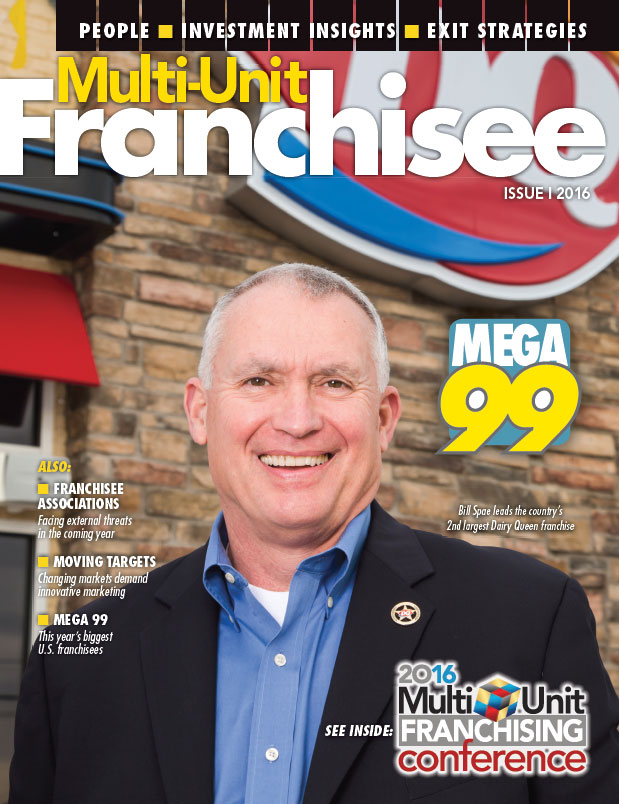Dealing in Reality: Why do Some Deals Fall Apart?

The M&A marketplace has seen some impressive activity over the past few years. Theoretically, this should have created a positive environment for all people looking to execute an M&A transaction. In spite of these favorable conditions, there are groups that can't seem to get a deal done. In many cases, these are people who care more about "winning" than consummating a transaction. Let's examine how to engage in industry standard business practices that can improve the likelihood of transaction success, while still getting the most for both buyer and seller.
When an investor divests 100 shares of stock each worth $10, they go forward with a sale for $1,000 without question, because that is what the market has deemed fair and acceptable. There are constant sources of information readily available to validate transaction norms and fair market value. This dynamic can change when it concerns private, entrepreneurial-based M&A transactions. There is certainly more of an emotional charge to consider when someone is selling their own business rather than shares of Microsoft. However, the fact doesn't change that a very established market still ultimately dictates the pricing and terms deemed most accurate given the quality of the assets and the current industry climate. Yet, regardless of this reality, some buyers and sellers fail to position themselves to execute a transaction because they feel the need to win at someone else's expense.
We truly appreciate the spirit of entrepreneurship and understand the competitive nature inherent in business owners, so we are not suggesting that a party shouldn't seek to obtain the best deal possible. However, it's important to realize and accept the fact that the majority of successful transactions happen in market-bandwidth terms, and the marketplace is well-informed.
First and foremost, it is crucial to understand market valuation parameters. The most frequent source of transaction failure is the lack of realistic understanding regarding transaction value versus transaction multiples. Some of this is the sincere result of misinformation in the market that sellers and buyers are relying upon. Every day we encounter parties who are hearing about transaction values that are just plain wrong. This provides the basis of a faulty valuation perception that is hard to overcome. However, in some cases, parties deliberately want to incorrectly apply unrelated attributes or circumstances to their own situation, whether that is comparing different brands, geographies, growth potential, or otherwise. We have had more than one industry participant try to justify why their franchise business should trade at the same valuation multiple as their publicly traded franchisor.
Then there are those clients who just want an "off-market" transaction. While these deals do happen occasionally, they are by no means the norm. If this is the only kind of transaction you are interested in, it is imperative that you communicate this early and openly; the market will take you more seriously if you concede the position that you are interested only in an opportunistic valuation. However, it is also necessary to recognize that even opportunistic valuations must be based in legitimate market realities. Parties that want to buy at a 4x multiple but sell at 8x need to realize that although this situation is entirely appealing, it is also completely impractical. Not only will chasing after such outlandish valuations never result in transactional success, it will also do you a reputational disservice. Again, the marketplace is well-informed and does not overlook or accept nonsensical valuations.
The second greatest source of failure is the lack of understanding of fairly accepted, commercial purchase agreement terms and standards. Successful buyers and sellers engage knowledgeable M&A advisors and attorneys to help them through this part of the process. Others attempt to "go it alone" or engage a familiar attorney used for general business activities versus one that specializes in transaction work. Failing to use credible advisors in an M&A process will not only cost you time, it will almost certainly cost you treasure and potentially the deal itself. These advisors use a relatively standardized set of documents to provide consistency and reduce the recurring need to over-negotiate each transaction from the ground up, while simultaneously helping to eliminate some unnecessary brain damage and stress. At this stage in any transaction, deal fatigue can set in and degrade the likelihood of closure. One method we have experienced success with is when participants opt to bypass the LOI stage and go straight into APA negotiations. By investing a little money up front, firms can use market-based agreements that serve as a solid jumping-off point for deal discussions and specific transaction tailoring.
Another area worthy of discussion is certainty and speed of closure versus collecting every last dollar off the bargaining table. Transactions involve many types of tradeoffs. We ask many of our clients to put together a list of objectives and rank them by priority before launching a process, often reminding them and ourselves to revisit that list during the challenging days and weeks in the transaction marathon. You may seek to maximize price, which inherently decreases the interested audience and increases your counter-party risk once you go under exclusivity. Alternately, you may opt to solve for certainty of closure or retention of key personnel, in which case buyer selection and previous transaction track record must be weighed with great importance. It is critical to keep your specific priorities top of mind. Achieving what is most meaningful to you is the correct measure of success.
Finally, it is important to keep in mind how others are perceiving you. The last thing you want to do is give yourself a reputation of being difficult to work with. Not only can this make people reluctant to work with you, it can also severely affect your chances of being considered as a viable buyer or seller. Parties who develop a bad reputation will ultimately miss out on opportunities because fair dealers will choose to avoid them, opting to work with people who share the desire to do business in a productive manner.
Conclusion
Overall, a "good for the goose, good for the gander" approach helps buyers, sellers, advisors, and everyone else involved in the process because it is both more efficient and reduces the time spent negotiating deal terms. While it is true that this approach might not automatically resonate with a longtime owner who is selling their life's work to retire, it is important to remain as objective as possible. Remember that unnecessary negotiation affects goodwill between parties, creating a challenging climate in which to resolve the truly important issues. Taking impractical positions makes it more difficult for your advisors and attorneys to do their jobs successfully, especially if they are put into a position where they have to support unrealistic terms. Doing so also can cause a loss of credibility in the eyes of the other party, not to mention the increase in the amount of legal costs that will be incurred by both sides.
How you engage in a transaction and how your approach evolves over its course will directly shape your potential for success. Following industry norms and well-defined best practices may seem overly conventional to some, but we have demonstrated that an approach of fair dealing actually results in better execution, as well as happier clients.
Dean Zuccarello is CEO and founder of The Cypress Group, a privately owned investment bank and advisory services firm focused exclusively on the multi-unit and franchise business for 25 years. He has more than 30 years of financial and transactional experience in mergers, acquisitions, divestitures, strategic planning, and financing in the restaurant industry. Contact him at 303-680-4141 or [email protected].
Share this Feature
Recommended Reading:
FRANCHISE TOPICS
- Multi-Unit Franchising
- Get Started in Franchising
- Franchise Growth
- Franchise Operations
- Open New Units
- Franchise Leadership
- Franchise Marketing
- Technology
- Franchise Law
- Franchise Awards
- Franchise Rankings
- Franchise Trends
- Franchise Development
- Featured Franchise Stories
FEATURED IN

Multi-Unit Franchisee Magazine: Issue 1, 2016

$50,000
$150,000





 The multi-unit franchise opportunities listed above are not related to or endorsed by Multi-Unit Franchisee or Franchise Update Media Group. We are not engaged in, supporting, or endorsing any specific franchise, business opportunity, company or individual. No statement in this site is to be construed as a recommendation. We encourage prospective franchise buyers to perform extensive due diligence when considering a franchise opportunity.
The multi-unit franchise opportunities listed above are not related to or endorsed by Multi-Unit Franchisee or Franchise Update Media Group. We are not engaged in, supporting, or endorsing any specific franchise, business opportunity, company or individual. No statement in this site is to be construed as a recommendation. We encourage prospective franchise buyers to perform extensive due diligence when considering a franchise opportunity.